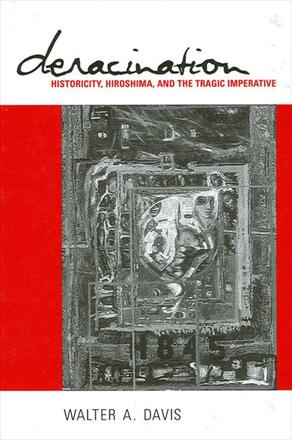
Deracination
Historicity, Hiroshima, and the Tragic Imperative
Alternative formats available from:
Attempts to comprehend the traumatic significance of Hiroshima in order to construct a new theory of history.
Description
Through a critique of history—as a reality, a discipline, and a way of writing—Deracination challenges the basic theoretical tenets of both humanism and postmodernism. As a discipline, history is currently undergoing what Heidegger would call a productive "crisis," and a number of thinkers, including Michel Foucault, Hayden White, Paul Ricoeur, and Stephen Greenblatt, have begun to reexamine the cognitive assumptions and narrative paradigms that inform the discipline. This book radicalizes such developments in order to construct both a new theory of history as well as a new concept of how histories should be written. To make the interrogation concrete, the book focuses on Hiroshima and the ways in which the trauma of that event has been repressed by the discourses that historians have fashioned in order to "explain" what happened on August 6, 1945.
Walter A. Davis is Professor of English at Ohio State University. He is the author of several books, including Get the Guests: Psychoanalysis, Modern American Drama, and the Audience and Inwardness and Existence: Subjectivity in/and Hegel, Heidegger, Marx, and Freud. He recently published the companion piece to the present volume: The Holocaust Memorial: A Play about Hiroshima.
Reviews
"The issues raised in this book strike at the heart of the crisis of contemporary political rationality and its philosophical, literary, and sociological understanding. In addition, it is an important critique of the dominance of scientific epistemology as the model for philosophical and political rationality. It re-establishes the basis for a real contact on the part of critical reflection with self, world, and others. " — Garth Gillan, author of Rising from the Ruins: Reason, Being, and the Good After Auschwitz
"Davis draws on an impressive number of scholarly traditions from across a number of disciplines. This is a supple and sophisticated mind at work. This book is exciting, even exhilarating at times in its intellectual energy and expansiveness. " — Gary A. Olson, coeditor of Race, Rhetoric, and the Postcolonial